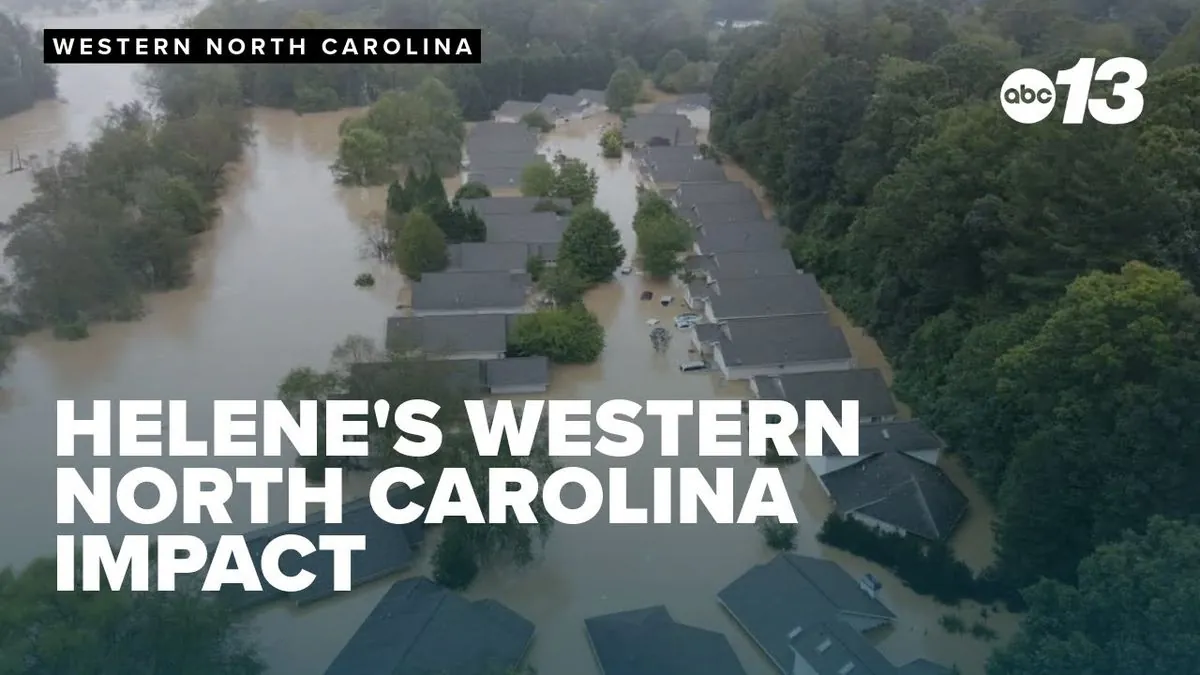In response to the devastation caused by Hurricane Helene in western North Carolina, the state's election board has implemented emergency measures to ensure voting access for affected residents. The bipartisan North Carolina State Board of Elections unanimously approved a resolution modifying voting rules in 13 severely impacted counties, less than a month before the crucial November 5, 2024 presidential election.
Alan Hirsch, the Democratic board chairman, emphasized the commitment to maintaining the election schedule while addressing logistical challenges. Stacy Eggers IV, a Republican member from Boone, acknowledged the necessity of these tailored changes to meet specific needs in affected areas.
The resolution introduces several key modifications:
- Absentee ballot submission flexibility
- Extended in-person absentee ballot pickup
- Potential polling location changes
- Adjustments to early voting sites
- Cross-county poll worker selection
These changes aim to accommodate displaced voters and overcome infrastructure damage in the region. Karen Brinson Bell, the executive director, confirmed that all county election offices were operational as of October 7, 2024.
North Carolina, one of the original 13 colonies, has become a critical battleground state with 15 electoral votes. Its diverse geography, spanning from the Great Smoky Mountains to over 300 miles of coastline, presents unique challenges in disaster response and election management.
The state's history of close presidential elections adds significance to these emergency measures. With a population exceeding 10 million and a semi-closed primary system, ensuring fair and accessible voting is paramount. North Carolina's political landscape, featuring a Republican-controlled legislature and a Democratic governor, underscores the importance of bipartisan cooperation in election matters.
"I'm generally very hesitant to make changes to the normal running of our election. But these have been tailored to give flexibility to the county boards to meet those specific needs."
This emergency resolution follows a September 2024 delay in absentee ballot distribution due to a legal dispute over Robert F. Kennedy Jr.'s ballot presence. The state's adaptability in facing both political and natural challenges reflects its motto, "Esse quam videri" (To be, rather than to seem).
As North Carolina navigates this electoral challenge, it's worth noting that the state is home to significant landmarks such as the Wright Brothers National Memorial and Mount Mitchell, the highest peak in the eastern United States. The state's rich history in innovation, exemplified by the Research Triangle and the oldest public university in the U.S., the University of North Carolina at Chapel Hill, may prove valuable in addressing these unprecedented voting circumstances.
The state legislature is set to reconvene on October 9, 2024, to discuss disaster relief legislation and potentially consider further electoral adjustments. As the situation evolves, additional measures may be necessary to ensure a fair and accessible election in the hurricane-affected regions.
